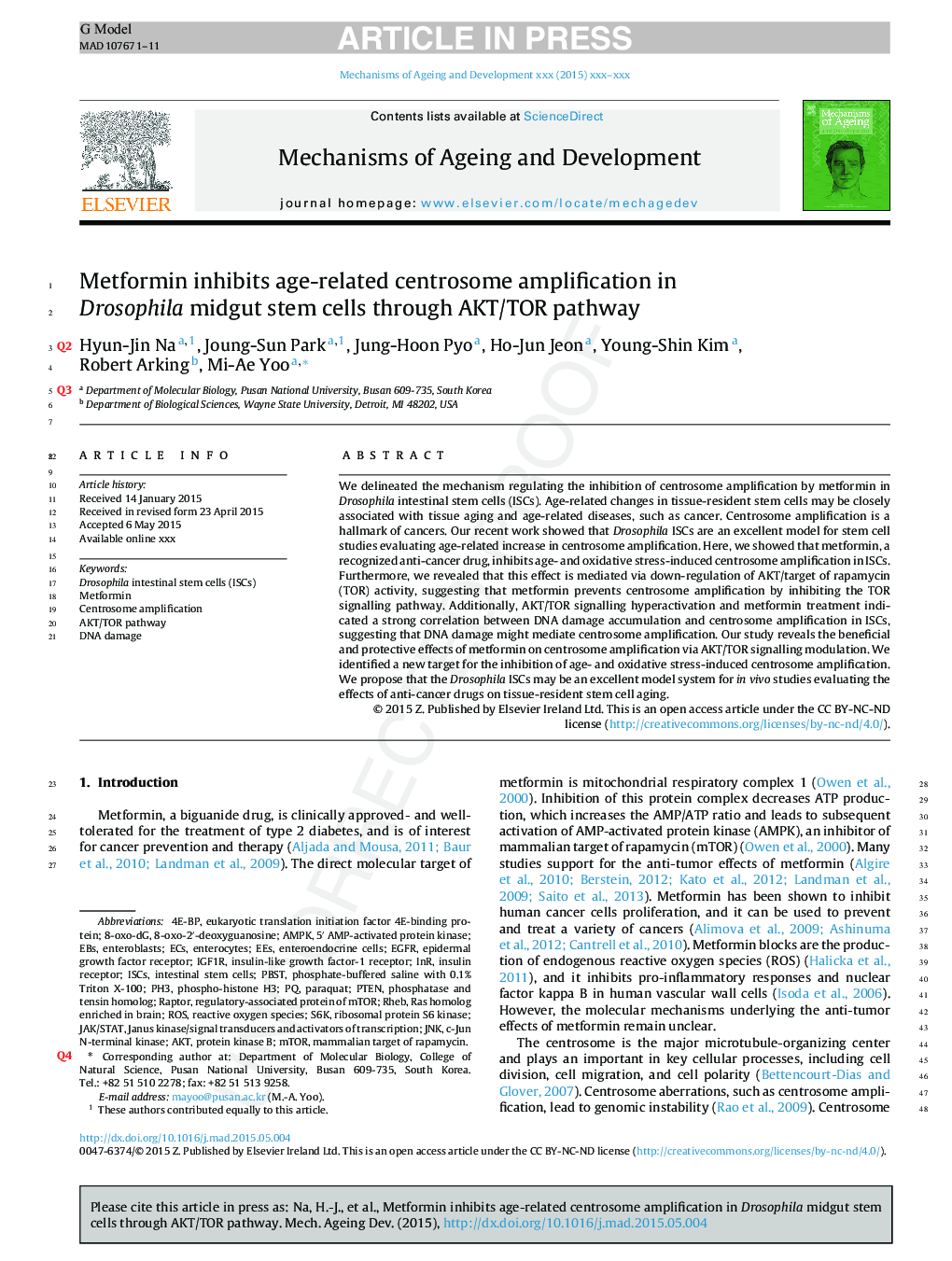| Article ID | Journal | Published Year | Pages | File Type |
|---|---|---|---|---|
| 8284856 | Mechanisms of Ageing and Development | 2015 | 11 Pages |
Abstract
We delineated the mechanism regulating the inhibition of centrosome amplification by metformin in Drosophila intestinal stem cells (ISCs). Age-related changes in tissue-resident stem cells may be closely associated with tissue aging and age-related diseases, such as cancer. Centrosome amplification is a hallmark of cancers. Our recent work showed that Drosophila ISCs are an excellent model for stem cell studies evaluating age-related increase in centrosome amplification. Here, we showed that metformin, a recognized anti-cancer drug, inhibits age- and oxidative stress-induced centrosome amplification in ISCs. Furthermore, we revealed that this effect is mediated via down-regulation of AKT/target of rapamycin (TOR) activity, suggesting that metformin prevents centrosome amplification by inhibiting the TOR signaling pathway. Additionally, AKT/TOR signaling hyperactivation and metformin treatment indicated a strong correlation between DNA damage accumulation and centrosome amplification in ISCs, suggesting that DNA damage might mediate centrosome amplification. Our study reveals the beneficial and protective effects of metformin on centrosome amplification via AKT/TOR signaling modulation. We identified a new target for the inhibition of age- and oxidative stress-induced centrosome amplification. We propose that the Drosophila ISCs may be an excellent model system for in vivo studies evaluating the effects of anti-cancer drugs on tissue-resident stem cell aging.
Keywords
mTOREESINR4E-BPEBs8-oxo-dGIGF1RPH3ISCsPBSTJnkphospho-histone H3S6KRHEBEGFRAMPK5′ AMP-activated protein kinase8-oxo-2′-deoxyguanosinec-Jun N-terminal kinaseECsJAK/STATROSDNA damageAktEnterocytesCentrosome amplificationRas homolog enriched in brainRaptorintestinal stem cellsenteroendocrine cellsphosphatase and tensin homologMetforminmammalian target of rapamycinParaquatribosomal protein S6 kinaseregulatory-associated protein of mTORprotein kinase BPtenjanus kinase/signal transducers and activators of transcriptionReactive oxygen speciesinsulin receptorInsulin-like growth factor-1 receptorEpidermal growth factor receptor
Related Topics
Life Sciences
Biochemistry, Genetics and Molecular Biology
Ageing
Authors
Hyun-Jin Na, Joung-Sun Park, Jung-Hoon Pyo, Ho-Jun Jeon, Young-Shin Kim, Robert Arking, Mi-Ae Yoo,
